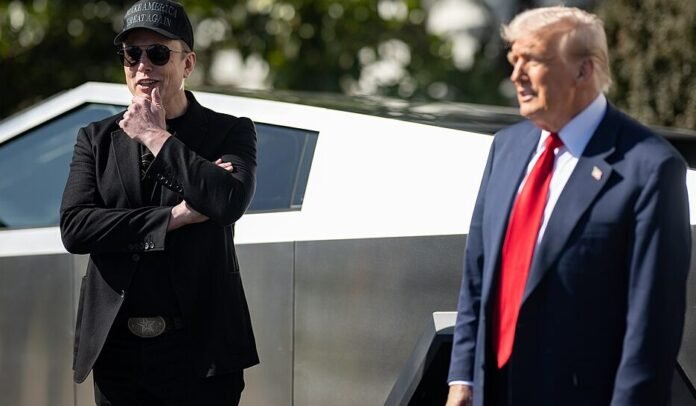Trump ups steel tariffs, defends Musk amid drug claims, and revokes visas for Chinese students
President Donald Trump ended a turbulent Friday by making a flurry of consequential moves, deepening economic tensions abroad and controversy at home. In a single day, Trump doubled steel tariffs, defended Elon Musk amid explosive drug allegations, and escalated a crackdown on Chinese students studying in the US.
Speaking at a Pennsylvania steel plant, Trump announced a 50% tariff on foreign steel, up from 25%, aiming to reinvigorate domestic production. He unveiled the measure during a tour of a facility jointly operated by US Steel and Japan’s Nippon Steel, calling it “the future of American strength.”
“This is how we protect American workers,” Trump declared. “We don’t build greatness by letting foreign competitors flood our markets.”
While the announcement earned applause on the factory floor, global markets reacted warily, with analysts warning of retaliatory moves from trading partners including the EU, Canada, and China.
Earlier in the day at the White House, Elon Musk’s formal government role ended, but not without controversy. Trump praised the Tesla CEO’s time as an unpaid government adviser, calling him “a brilliant mind” and “a patriot.” Both men confirmed Musk would continue offering informal advice on economic matters.
But their Oval Office appearance was overshadowed by a New York Times exposé alleging Musk engaged in far more frequent drug use than previously known. The report cited multiple sources claiming Musk’s substance use intensified during his rise as a Trump insider in 2024.
Embed from Getty ImagesAsked if he knew about the allegations, Trump said flatly, “I think he’s fantastic… I’m not troubled by anything with Elon.” Musk, meanwhile, brushed off questions by attacking the newspaper’s credibility before cutting the press short.
It remains unclear whether Musk’s reported drug use coincided with official duties in government, but the revelations come at a sensitive moment for Trump, who has leaned heavily on Musk’s cachet in tech and industry circles.
Later in the evening, Trump addressed reporters on Air Force One after returning from a Pittsburgh rally, attempting to calm fears over his administration’s plan to revoke visas for Chinese students.
“They’re gonna be OK. It’s gonna work out fine,” he said when asked what message he had for affected students. He insisted the policy targeted only individuals of concern and said universities like Harvard were refusing to cooperate with federal demands.
“Harvard ought to give us the list and get themselves out of trouble,” Trump said. “They don’t want to give the list because they have names on there that supposedly are quite bad.”
The comments followed a controversial announcement by Secretary of State Marco Rubio that the US would “aggressively revoke” Chinese student visas, especially those with links to the Chinese Communist Party or studying in “critical fields” such as AI and engineering.
Beijing responded with fury earlier this week, calling the move “xenophobic and hostile.” Families across China are reeling from the policy shift, with widespread confusion about who will be targeted and how soon enforcement will begin.
Amid this chaos, a federal appeals court temporarily blocked Trump’s plans to mass-fire employees across more than a dozen federal agencies. The court upheld an earlier ruling that froze the controversial terminations, dealing a blow to Trump’s broader campaign to “drain the swamp” by gutting federal bureaucracy.
As the day closed, Trump remained defiant, basking in applause at rallies and steel mills alike. But with tariffs roiling markets, student visa policy inflaming global relations, and Musk’s scandal gaining steam, Friday’s flurry of news hinted at deeper turbulence in the months ahead.
